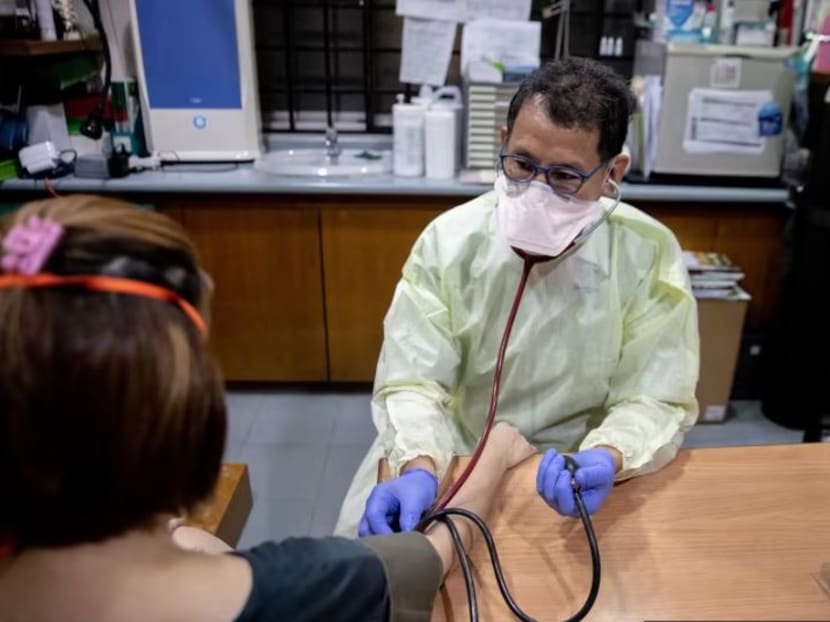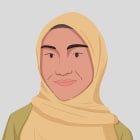Eligible participants of Healthier SG programme to get S$20 worth of healthpoints and more subsidies for chronic medication
SINGAPORE – Eligible Singapore residents will receive S$20 in Healthpoints, while Singaporeans will get more subsidies for medication meant for chronic conditions as part of the Healthier SG programme, Minister for Health Ong Ye Kung said on Friday (March 3).

Dr Tan Tze Lee (pictured), a general practitioner at a clinic in Chua Chu Kang in March 2022.
- More financial support for residents with chronic diseases and cancer, and who are seniors and the needy, will be rolled out
- This includes a new subsidy framework for patients with chronic diseases to help them pay for medication
- Patients will also be able to use CPF MediSave to pay for medical and palliative care from selected home medical and nursing operators that provide basic palliative care
- The MediShield Life limit for cancer drug treatment services such as chemotherapy preparation will also be raised starting from next month
SINGAPORE – Eligible Singapore residents will receive S$20 in Healthpoints, while Singaporeans will get more subsidies for medication meant for chronic conditions as part of the Healthier SG programme, Minister for Health Ong Ye Kung said on Friday (March 3).
The Healthpoints, which are part of the Health Promotion Board’s integrated rewards programme, will be credited upon completion of the free first health consultation at participating clinics under Healthier SG, an upcoming national programme to improve Singaporeans' health.
Healthpoints may be exchanged for vouchers at some merchants, including NTUC FairPrice supermarket vouchers.
Speaking during a parliamentary debate on the Ministry of Health's spending, Mr Ong also announced that Singaporeans with chronic conditions — depending on their income level — will receive subsidies of up to 87.5 per cent for whitelisted drugs for chronic diseases, under a new Healthier SG "chronic tier".
This tier, which will take effect from early next year, will see such patients paying similar prices for their medication at general practitioner (GP) clinics under the Healthier SG programme, just as they would at polyclinics.
ENROLMENT TO START FROM JULY
Under the Healthier SG programme, Singaporeans will enrol with one family physician and and commit to seeing the physician or clinic to support their personal health.
The pre-enrolment exercise for the programme will begin from May this year for residents with chronic illnesses who are 40 years old and above, and who are already seeing a GP regularly to manage their conditions. The benefits will apply only from July after this pre-enrolment.
For everyone else who qualifies, the enrolment will start irom July for those aged 60 and above, and they will be invited to enrol in the programme via a phone text message. The remaining residents who are aged 40 and above will be then be invited progressively to choose and enrol with any Healthier SG clinics, including the polyclinics.
All residents eligible for the enrolment may choose any Healthier SG-registered clinic using the HealthHub mobile application.
Citizens who enrol for the Healthier SG programme will also enjoy full subsidies for nationally recommended health screenings and vaccinations at their registered Healthier SG family physician.
MORE FINANCIAL AID FOR PATIENTS WITH CHRONIC ILLNESSES
In his speech on Friday, Mr Ong also announced more financial help for Singaporeans with chronic diseases under the Chronic Disease Management Programme through a new Healthier SG "chronic tier", which patients enrolled under Healthier SG may choose to join from early next year.
With the new tier, these patients will also be able to receive subsidies of up to 87.5 per cent, depending on their income levels, with no dollar limit. They will have access to whitelisted chronic disease medications, thereby making such drugs at GP clinics under Healthier SG comparable to those available at polyclinics.
The whitelisted drugs are a set of about 300 medications that are not brand-specific. They are used at polyclinics for the Chronic Disease Management Programme, which covers 23 chronic diseases including diabetes, hypertension and major depression.
Patients under this new tier will also receive adjusted dollar-based subsidies of up to S$360 a year for other chronic care components, such as consultation and laboratory tests.
Typically, patients with complex chronic diseases need more medications and the subsidies under the existing Community Health Assist Scheme (Chas) for citizens are not enough. This is especially if they go to GP clinics and that is why they tend to go to polyclinics to get their subsidised drugs.
However, for many of the people enrolling for Healthier SG, they may not need to get on this new tier.
"Today, Chas already provides significant subsidies for patients with low medication needs for chronic conditions," Mr Ong said. "So just with the Chas subsidies, they pay zero dollars or very little for their visits and medications."
Patients who apply for the new Healthier SG chronic tier can still use the original Chas chronic tier and may switch between both schemes, but cannot use both concurrently.
Mr Ong added that the cash co-payment when patients use their MediSave accounts from the Central Provident Fund for chronic treatment will also be removed. Patients can use MediSave to pay their bills fully, up to the withdrawal limit. This will also be effective from early next year.
This means that residents who have any diseases under the Chronic Disease Management Programme will no longer have to co-pay 15 per cent of their medical bills in cash and can use MediSave to pay fully for their treatments.
The MediSave usage will still be subject to the withdrawal limit of up to S$700 yearly for each patient with a chronic disease, and up to S$500 yearly for each patient with a non-chronic condition.
OTHER ANNOUNCEMENTS BY MOH
FINANCIAL SUPPORT FOR NEEDY PERMANENT RESIDENTS
The Ministry of Health (MOH) said that it is looking into providing, on a case-by-case basis, financial support to the healthcare of needy permanent residents who have Singaporean family members.
ENHANCED HOMECARE SERVICES
To make it easier for patients to be cared for at home, MOH said that the use of the Central Provident Fund's MediSave and the Community Health Assist Scheme (Chas) subsidies for chronic diseases will also be extended for video consultations of such conditions under the Chronic Disease Management Programme.
Patients will also be able to use MediSave to pay for medical and palliative care from selected home medical and nursing operators that provide basic palliative care. Currently, only home palliative care providers who specialise in palliative care can help patients make MediSave claims.
MOH will also work with hospitals and palliative care providers to pilot bundled funding for this service.
HIGHER LIMIT FOR CANCER TREATMENT
The MediShield Life limit for cancer drug services such as consultations and chemotherapy preparation will be raised starting from next month.
Right now, MediShield Life coverage for cancer drug services are capped at S$1,200 a year, and for MediSave, it is S$600 a year.
MENTAL HEALTH SUPPORT FOR FATHERS
Mental health screening and support will be extended to the fathers and husbands of women and children treated at the National University Hospital (NUH) to allow for early intervention and case management and to facilitate multidisciplinary treatment.
To widen accessibility to its mental health services, NUH will also work with community partners to refer clients to the programme.
PROTECTING HEALTHCARE WORKERS FROM ABUSE
MOH’s Tripartite Workgroup that was formed last year to look into the rising number of cases of abuse and harassment of healthcare workers has found that almost one in three of them has witnessed or experienced abuse at least once a week.
MOH will share more details of the findings and give updates on its plan on how to tackle such abuse later this month.
EGG-FREEZING AGE LIMIT UNDER REVIEW
The ministry is also reviewing the upper age limit for elective egg freezing, which is now set at 35 years old.
Dr Janil Puthucheary, Senior Minister of State for Health, said on Friday: "We are aware that the success rate of egg freezing remains relatively stable up to 37 years old at the point of donation."











